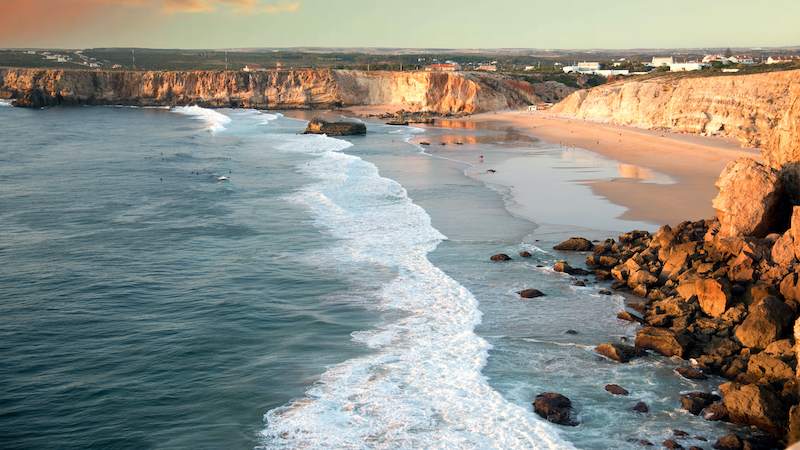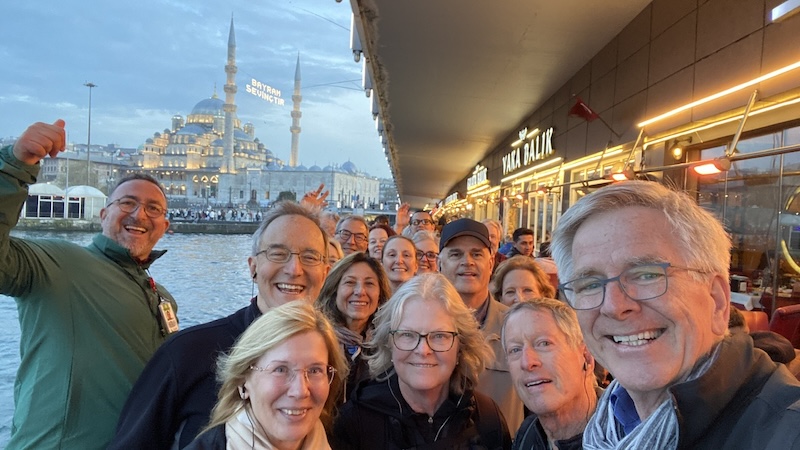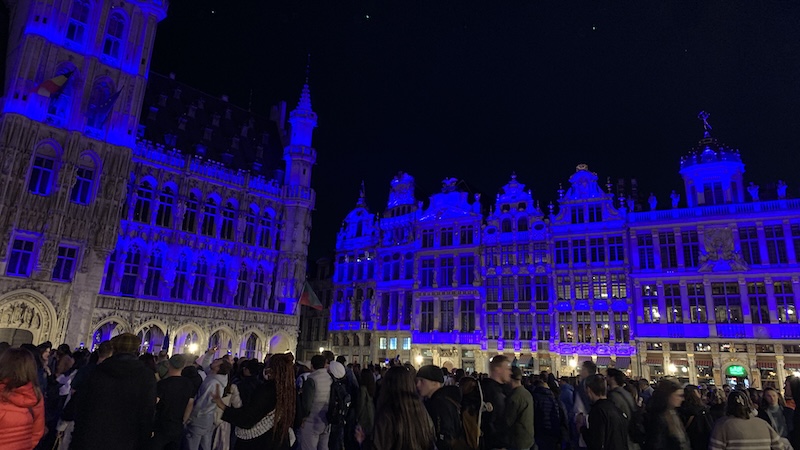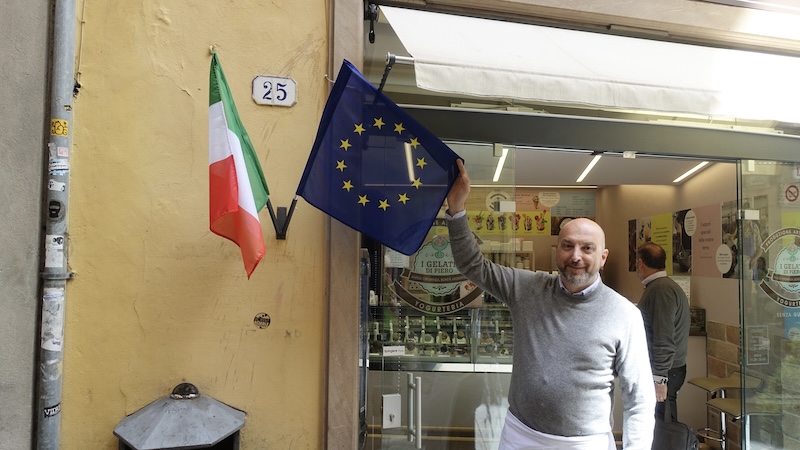Salema in the Algarve: Water Is Still Life
A peaceful pocket on Portugal’s lively south coast

Travel writer Rick Steves transports us to sleepy Salema, Portugal, where octopi are fished out of the sea in the same way – in the same undersea territories – as they have been for years and where family restaurants specialize in fresh seafood and service.
Since Phoenician times, octopi have been the main catch for the villagers of Salema, located on a still-sleepy patch of the Algarve, Portugal’s popular south coast. And the fishing process has changed little in several thousand years. At the crack of dawn, I wait at the beach for my local friend, Sebastian, who’s agreed to take me out to check the pots. As Sebastian pushes his boat into the sea, he helps me board. His hands are thickly calloused; mine are mostly used for a laptop. My white and tender feet are slathered with sunscreen; his are like hooves as they grab the crackled wooden surface of his garishly colored and well-worn boat. Vivid contrasts make vivid travel memories.
The barnacle-encrusted pottery jars stacked around town are much more than rustic souvenirs: they’re octopus traps. They’re tied about 15 feet apart in long lines and dropped offshore. (And ancient, unwritten tradition allocates different chunks of undersea territory to each Salema family.) Octopi, thinking these are a cozy place to set an ambush, climb in and get ambushed themselves. When the fishermen hoist them in, the stubborn octopi hang on – unaware they’ve made their final mistake.
Sebastian hauls in the line as the old pots are noisily welcomed aboard. Water splashes everywhere, but there’s no sign of an octopus. But then, Sebastian grabs his bleach bottle, gives each pot a little squirt, and a maced octopus flops angrily into the boat. It’s bound for the market and, who knows, perhaps my dinner plate tonight.
Salema in Algarve, still undiscovered
From the boat, I survey this stretch of Portugal’s Algarve. It’s long been known as “Europe’s last undiscovered tourist frontier,” but – as is the case with any place famous for being undiscovered – it no longer is. Most of the Algarve is going the way of the Spanish Costa del Sol: paved, miserably packed, and pretty stressful. It’s overdeveloped, with giant condo-type “villas” hovering over just about every beach with road access.
But one bit of old Algarve magic still glitters quietly in the sun: Sebastian’s hometown, Salema. You’ll find it at the end of a small road, just off the main drag between the big city of Lagos and the rugged “land’s end of Europe,” Cape Sagres. This simple fishing village has a dozen or so restaurants, a few hotels and bars, time-share condos up the road, English and German menus and signs (including bullfight ads for “Stierkampf”), and lots of sun.
Lying where a dirt road hits the sea, little Salema is blessed with a long, broad, gorgeous beach – luxurious with powder-fine sand, framed off by steep vivid-yellow cliffs, and relatively untrampled by rowdy tourists. For my money, it may be the most purely enjoyable beach in all of Europe.
Travelers and locals alike ignore an ever-growing circle of modern condo-type hotels, apartments, and villas up the hillside – skip the hotels, and go for the quartos (they’re like B&Bs, but without the breakfast). The town’s handful of small, family-run restaurants specialize in one thing: fresh seafood. Happily, those that face the beach are the most fun, with the best service, food, and atmosphere. The Atlantico is popular … and right on the beach. It’s especially atmospheric when the electricity goes out, and faces flicker around the candles. The Boia Bar, at the base of the residential street, is simple and friendly, with huge portions and a few tables a splashing distance from the surf.
To the tip of Portugal
From Salema, it’s a short drive to the rugged and historic southwestern tip of Portugal. This was the spot closest to the edge of our flat earth in the days before Columbus. Prince Henry the Navigator – determined to broaden Europe’s horizons – sent sailors ever farther into the unknown. He ran a navigator’s school at Cape Sagres. It was from here that Henry carefully debriefed the many shipwrecked and frustrated explorers as they washed ashore.
Today at Sagres, tourists surf, fishermen cast from its towering crags, local merchants sell homemade and seaworthy sweaters, and daredevil windsurfers skitter across the windy stretches of water. Here, travelers like me gaze, mesmerized, out at the horizon, where medieval Europe figured the sea dropped into mysterious oblivion.
In the Algarve, tourists and fishermen sport the same stubble. This hideaway is just the place for some rigorous rest and intensive relaxation … where globetrotting experts in lethargy mix with the locals, work on tans, and enjoy some very fresh octopus.
PHOTO CAPTION, ABOVE: Rugged Cape Sagres, on the Algarve – Portugal’s south coast – was the “end of the world” in the days before Columbus, Magellan, and the Age of Exploration. CREDIT: Cameron Hewitt, Rick Steves’ Europe.

Explore more of Rick Steves’ Europe in Boomer
© 2020 RICK STEVES
As an Amazon Associate, Boomer Magazine earns from qualifying purchases of linked books and other products.



